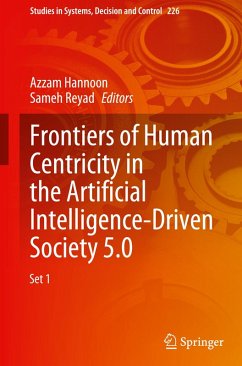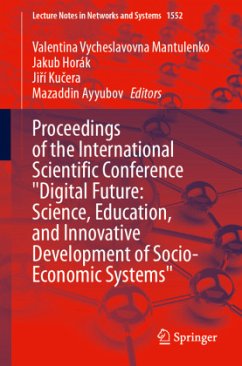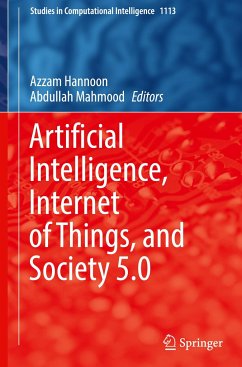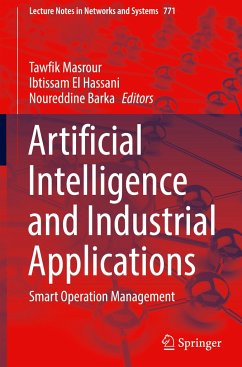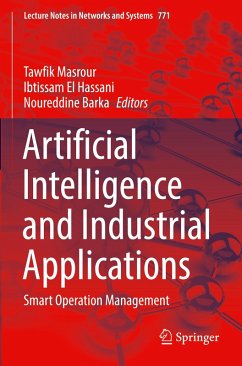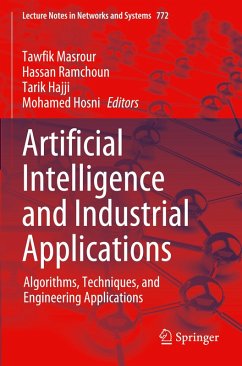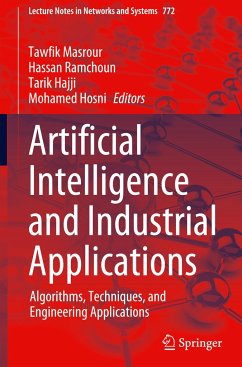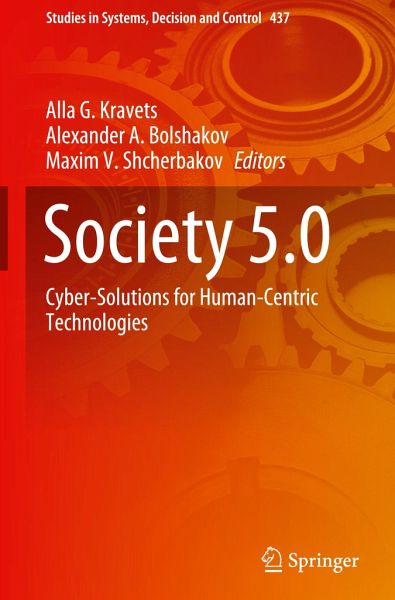
Society 5.0
Cyber-Solutions for Human-Centric Technologies
Herausgegeben: Kravets, Alla G.; Bolshakov, Alexander A.; Shcherbakov, Maxim V.

PAYBACK Punkte
61 °P sammeln!
This book focuses on open issues of Society 5.0, a new paradigm of a society, that balances a human-centred approach and technologies based on cyber-physical systems and artificial intelligence. The book contains results of how intelligent or cyber-solutions help to improve the quality of life in society despite new challenges.This book includes five sections. Section Society 5.0: Biomedicine and Healthcare present how cyber-physical systems help in healthcare, e.g. analysis of clinical data in pregnant women with hypertension, breast cancer diagnostics, healthy diet design and others. In the ...
This book focuses on open issues of Society 5.0, a new paradigm of a society, that balances a human-centred approach and technologies based on cyber-physical systems and artificial intelligence. The book contains results of how intelligent or cyber-solutions help to improve the quality of life in society despite new challenges.
This book includes five sections. Section Society 5.0: Biomedicine and Healthcare present how cyber-physical systems help in healthcare, e.g. analysis of clinical data in pregnant women with hypertension, breast cancer diagnostics, healthy diet design and others. In the chapter, the problem of data analysis and optimization is considered. The second Section, Society 5.0: Human-centric Cyber-Solutions highlight new findings on constructing virtual reality simulators, training of workers on the basis of equipment's digital twins, development of human capital. Society 5.0: Socio-Economic Systems Modelling includes chapters concerning the application of quantum-like mathematical models for the analysis of socio-economic systems, indicative planning models for agriculture, approaches of assessing and monitoring competitiveness risks of regions. A section, Society 5.0: Industrial Cyber-Solutions provides new results on cyber-physical systems of Russian oil market, railway joint diagnostics, and information support for maintenance and repair of a machine-building cyber-physical system. The last section, Society 5.0: Cyber-Solutions Security consider interoperability issues of security, the video conferencing, and scaling networks.
This book is directed to researchers, practitioners, engineers, software developers, professors and students. We do hope the book will be useful for them.
This book includes five sections. Section Society 5.0: Biomedicine and Healthcare present how cyber-physical systems help in healthcare, e.g. analysis of clinical data in pregnant women with hypertension, breast cancer diagnostics, healthy diet design and others. In the chapter, the problem of data analysis and optimization is considered. The second Section, Society 5.0: Human-centric Cyber-Solutions highlight new findings on constructing virtual reality simulators, training of workers on the basis of equipment's digital twins, development of human capital. Society 5.0: Socio-Economic Systems Modelling includes chapters concerning the application of quantum-like mathematical models for the analysis of socio-economic systems, indicative planning models for agriculture, approaches of assessing and monitoring competitiveness risks of regions. A section, Society 5.0: Industrial Cyber-Solutions provides new results on cyber-physical systems of Russian oil market, railway joint diagnostics, and information support for maintenance and repair of a machine-building cyber-physical system. The last section, Society 5.0: Cyber-Solutions Security consider interoperability issues of security, the video conferencing, and scaling networks.
This book is directed to researchers, practitioners, engineers, software developers, professors and students. We do hope the book will be useful for them.




